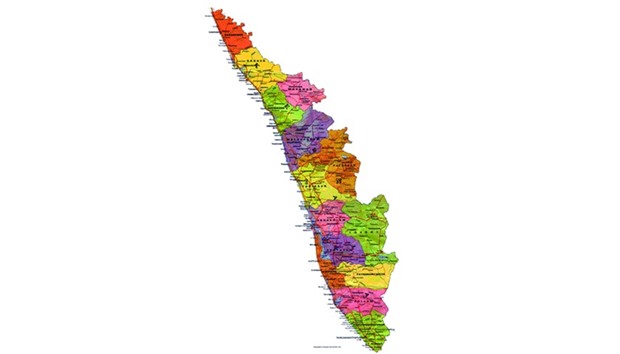With loss-making state-run enterprises, staff salaries, pensions and debt servicing siphoning off all its resources, Kerala is banking heavily on its large expatriate population for infrastructure development.
Presenting the southern state’s annual budget for the upcoming fiscal year, Finance Minister T M Thomas Isaac said the Communist government was planning to launch Pravasi Chitty, wherein every subscriber contributes a certain amount of money periodically and receives back a lump sum via a draw.
The government hopes to raise Rs120bn through the scheme, enrolling 100,000 expats, which will be open in three months, to fund two highways, one linking coastal villages in nine districts and the other through hills covering nine districts.
Both roads, financed by the Kerala Infrastructure Investment Development Board (KIIFB) formed in 1999, will touch Kasaragod, Kannur, Malappuram, Thrissur, Kollam and Thiruvananthapuram.
Thomas admitted Kerala was lagging behind other states in ease of doing business. It has dropped from 18 to 20th position among major states last year but the government “cannot compromise on trade union rights to attract investments like others,” the minister said.
“We can reverse the trend by building good infrastructure and upgrading of roads is a major component,” he said. “The government is committed to raising Rs500bn for renovation and expansion of the roads in five years.”
The National Highway Authority of India (NHAI) has committed Rs330bn for expanding existing highways into six lanes if the state government facilitates the land acquisition. Preparatory work on the 660km north-south corridor is in progress.
The total allocation for the roads and bridges in this budget, the second of the Communist government that assumed power in May, is Rs13.52bn.
“The two highways (costal route and the other through hills) will be vital components in Kerala’s transport network,” he said.
“No NRK (non-resident Keralite) has to contribute a single paise to the government for this. The bonds issued for the construction of the hill and coastal highways for an amount of Rs 100bn through KIIFB will be raised through the Pravasi Chitty,” the minister said
Expats can make their monthly remittance through any of the payment gateways. The entire payment will be invested automatically in NRI bonds of KIIFB in the name of KSFE.
There will be a call option available for KSFE for withdrawing sufficient amount at the time the subscriber gets the bid or when drawing the chitty amount. The balance free float will remain in KIIFB bonds.
Another proposal is to form a platform named ‘Loka Kerala Sabha’ for NRKs. It will comprise nominated members representing NRKs from various countries and members of Kerala Legislative Assembly.
Mixed reaction from NRKS
While welcoming the welfare schemes, many NRKs raised apprehensions about Pravasi Chitty as similar attempts in the past like Infrastructure Kerala Ltd (InKEL) and Cheraman Financial Services had not lived up to expectations. “Any such project should be linked to the massive reverse migration likely anytime and the rehabilitation of expats,” said Mansoor Palloor, a Dammam-based spokesperson for the Overseas Indian Cultural Congress.
“It’s sad that there’s no concrete proposal for a comprehensive policy for returning migrants. There is even no clarity on the guarantee the government is going to provide on the Chitty investments,” Palloor claimed.
However, UAE-based investment advisor K V Shamsudheen did not subscribe to Palloor’s views. “I expect NRKs to utilise the opportunity to invest,” he said on the phone from Sharjah. “I’m sure it provides a good investment avenue for NRKs, especially those living in GCC countries.”
Aster group chairman Dr Azad Moopen said he was delighted that health had been accorded a high priority. “Commitment to taking measures to prevent diseases through a focus on preventive healthcare is a good step given the growing healthcare burden on the exchequer,” he said.

